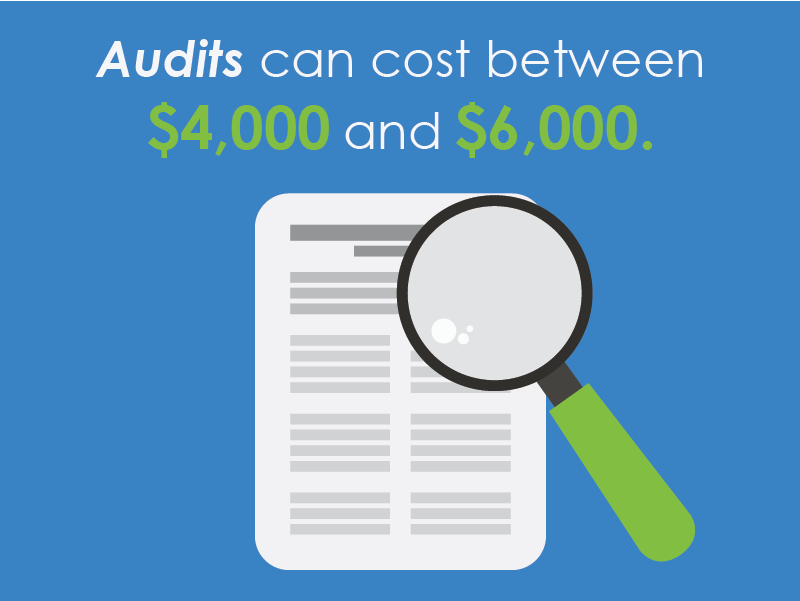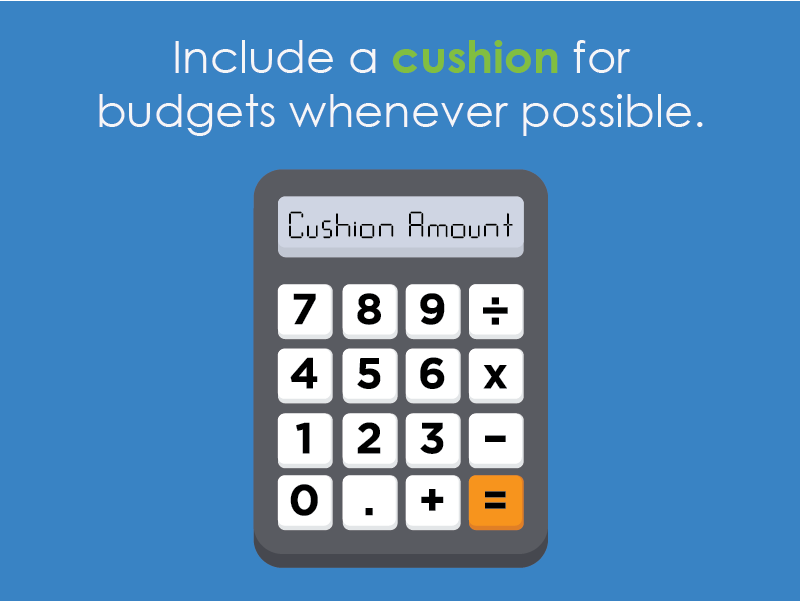Accounting can be a challenging thing for HOA communities to master. Board members, the ones responsible for creating budgets, establishing financial goals, and ensuring the HOA’s financial matters are being handled in accordance with state laws and regulations, don’t always have prior accounting experience. Board members are volunteers, and while they work very hard to serve their community, most feel apprehensive about managing such a significant amount of money.
The good news is board members don’t have to try to figure things out on their own. HOAs have the option to hire a professional, such as an HOA management company that specializes in finances, or a certified accountant, to help them maintain the financial health of their community. Moreover, they can apply some top accounting practices, which we will cover in this article.
1. Understand the significance of good and poor HOA financial management
A homeowners association cannot properly operate if it doesn’t have the money to pay for services, repairs, etc. From clearing snow to keeping the lights on in the clubhouse, HOAs need to have money available for day-to-day expenses as well as significant projects. Poor HOA financial management can lead to numerous unwanted consequences for the HOA and its board. An inadequate financial plan disrupts new projects, forces cutbacks, or in extreme cases, may bankrupt the association.
If the HOA runs out of money, this forces the board to either take out a loan, or charge special assessments to homeowners. Neither option is ideal, and the latter option never sits well with owners. Plus, having to resort to one of these options deters new owners from moving in, and may encourage current owners to move out.
Finally, though it does not happen often, members of a development do have the ability to take legal action against a board for mismanagement. Don’t let this information scare you. As long as the board acted responsibly, and took reasonable steps to manage the community’s financial assets properly, it’s highly unlikely that a judge will punish a board. That being said, if you find yourself in a position where financial responsibilities are becoming overwhelming, it’s in everyone’s best interest to hire a professional who can get the association back on track.
2. Choose the accounting method that works best for your association
This is old news to seasoned board members, but new members may not be aware that there are actually three main accounting methods available to associations: Cash Basis, Accrual Basis, and Modified Accrual Basis. A basis of accounting refers to the timing of the recording of financial transactions. The Accrual Basis is generally the preferred method for HOAs because it is the only one that conforms with the Generally Accepted Accounting Principles (GAAP), a set of established rules that contain the details, complexities, and legalities of business and corporate accounting.
Cash Basis
Under this accounting method, revenues are only reported once the association has received money, and expenses are only reported once the association makes a payment. Assessments receivable, prepaid assessments, and accounts payable are not reported on the balance sheet when this method is used, which may create more work for the board later on.This basis of accounting is a popular choice, and many HOAs elect to use it. But, an association cannot use this method when preparing official financial statements as it does not comply with GAAP.
Modified Accrual Basis
Also known as the Modified Cash Basis, the Modified Accrual Basis of accounting combines the Cash Basis with the Accrual Basis methods. The Modified Accrual Basis method is unique because revenues are recorded as soon as they are earned, but expenses are only recorded when payment has been made. In this case, accounts like assessments receivable and prepaid assessments will appear on the balance sheet, but liability accounts such as accounts payable will not appear. Like the Cash Basis, this method can only be used for interim or unofficial reporting.
Accrual Basis
Under the Accrual Basis, all financial activities are reported on the HOA’s financial statements. Revenue is recorded when earned, and expenses are documented as soon as they are incurred. Accrual accounting is regarded as the preferred accounting method because it offers a more complete picture of the HOA’s financial status. It can be used for official recording and reporting since it conforms with GAAP.
3. Get in the habit of conducting regular audits
A financial audit is an in-depth study of an association’s financial reports. The goal of an audit is to give an HOA an independent and objective evaluation of the financial reporting process used, and give the association assurance that its financial statements are accurate and complete. Basically, an audit confirms that an HOA’s numbers are correct. If there are irregularities, an audit can help the HOA identify and fix small problems early on before they turn into bigger issues.
Many state laws require HOAs to conduct annual audits, and some will pay for an annual audit even if it’s not required by law. HOA audits can cost between $4,000 and $6,000 though, so some associations may conduct audits once every three years.

Larger communities will benefit from getting both a financial audit and a review. A review is a less intense process. A CPA will do a routine checkup and make sure all records are accurate. An audit requires more work from the CPA to analyze the HOA’s financial situation. The CPA must verify that all the information in the HOA’s reports is correct. This includes calling debtors to see how much people owe to the association. The CPA will also call creditors to confirm how much the association owes.
Smaller associations with fewer assets don’t usually need annual audits if they are not required to do so. An annual review is often sufficient.
4. Make it so future board members can make sense of accounts
When creating the association’s chart of accounts and expense accounts, it’s always best to be as specific as possible. For example, when tracking sources or revenue, don’t group it all into one account. Be thorough and make subcategories. While this seems like more work, this documentation strategy will pay off in the long run. The more details the HOA can provide, the more transparent it can be. Owners appreciate this, and future board members who will need to review old financial records will be thankful as well. The current board will also be able to make better sense of expense and revenue streams.
Be careful about creating new titles for the same items. For example, don’t use “advertising income” one year, and then “income from advertising” the following year. It is a minor difference, but it can get confusing pretty quickly if this is done for several accounts. Consistency is key.
5. Minimize the potential for mismanagement
Most board members would never steal money from their association, but there are a handful of people that will attempt to get away with this crime. As a best practice, the HOA should have rules in place that minimize opportunities for deliberate theft and unintentional money mismanagement. As an example, a single board member should never have control over every financial department. Instead, the person who writes the association’s checks should be different from the person in charge of managing receivables. Similarly, checks addressed to the HOA should go directly into the proper bank account.
It’s also wise to have someone review invoices, deposits, and bank statements on a regular basis. Some HOAs have a finance committee that is tasked with this responsibility. Since this is a volunteer position, those serving on the committee often do have a financial background. The committee may meet with the board on a quarterly basis to discuss anything of significance, as well as initiatives on how the association may reach long-term goals. Quarterly meetings help ensure that the finance committee, the board, and management are all on the same page.
6. Switch to online accounting
Cloud-based accounting software automates and simplifies accounting for HOAs. For one thing, since all accounting activity is in one place, it’s far easier to manage and update. Boards never have to worry about data getting erased if a computer goes down because all of the information is stored securely on a server. Similarly, board members (and property managers) can achieve a lot more in the same amount of time. They can send invoices, record payments, chart expenses and income, manage bills and more. Some systems will even allow associations to create recurring payments, so bills are automatically paid, and owner dues are automatically collected.
When the board understands how much the association is spending, and where money is being used, it can make more informed decisions for the community, including where spending could be curbed, and how much dues should be increased. Software makes this entire process remarkably easier, and gives the association more transparency and insight into accounting activity. Records are always a good thing when working with numbers. If the board is still using petty cash, consider switching to a credit card with a low credit limit.
7. Include a cushion for budgets whenever possible
If you’ve ever been responsible for planning a big party or event, overseeing a home renovation, or even budgeting for a trip, you know how easy it is to overspend. The same applies to managing an HOA budget, but on a much larger scale. While it isn’t always possible, associations should try to leave room for unplanned expenses in their budget. That’s in addition to the reserve fund. Even a modest cushion can help prevent future overspending, debt, or special assessments. Give each budget category a little extra money, just in case.

On a similar note, be mindful of annual increases when working with operational costs. The cost of living is always rising, which means the association’s electricity bill, or pool care service could be more costly next year. Don’t put operational costs on autopilot. When it’s time to create a budget for the next year, take time to review vendor contracts to verify if prices are going to stay the same, or go up. Even a small increase can negatively impact the budget if the association isn’t prepared for it.
8. Communicate
No matter what the board is doing, communication is always essential. Open discussions about finances should be held regularly, and not just between board members. Owners want to know what’s going on in their community. After all, each member must pay dues, so each member should be informed about where that money is being spent. Board members are encouraged to be transparent about all relevant financial transactions, and be open about results and outcomes, even if they aren’t all positive.
Board members are also encouraged to stay in contact with vendors that they regularly work with. It doesn’t hurt to see if they are in a position to offer discounts or deals to long-term clients, but if you don’t ask, they probably won’t bring it up. By communicating regularly with vendors, you won’t be surprised if service prices increase. The board will also have an opportunity to look for a new service provider if they know in advance that a current partner is increasing their prices.
Conclusion
When it comes to accounting, HOAs share similarities with small businesses. While HOAs do not operate with the intention of profiting, they do receive and spend money, and must make smart financial choices in order to succeed. As such, accounting tasks must be taken seriously, and treated like a real job. Good accounting practices can help an HOA reach its full potential. Owners will be much happier that there is a plan in place to keep the community well maintained and safe, and the board will have the ability to confidently move forward with projects and plans to make the neighborhood an even better place to live.























